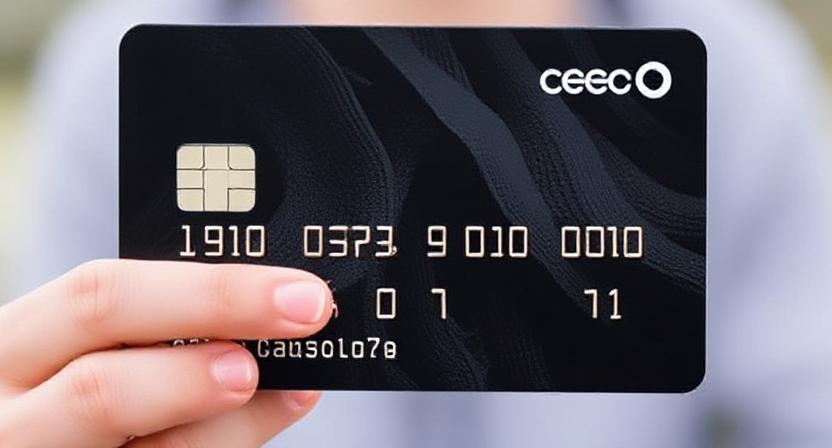Introduction
Best Credit Card for Students with No Credit Starting your financial journey as a student can be overwhelming, especially when you have no credit history. Fortunately, in 2025, several financial institutions offer beginner-friendly credit cards tailored specifically for students. These cards are designed to help you build credit, learn financial responsibility, and enjoy essential benefits like cashback, no annual fees, and more.
In this guide, we’ll explore the best credit card for students with no credit, including their features, approval tips, and how they help build your credit profile.
Why Students Need a Credit Card
Getting a student credit card isn’t about shopping sprees. Instead, it’s a practical step toward building your credit score early in life. A strong credit history opens doors to future loans, car financing, and even renting an apartment.
Key Benefits:
- Build your credit score from scratch
- Learn to manage debt and payments
- Gain access to emergency funds
- Earn rewards like cashback or discounts
- Use as a financial tool while studying abroad
What to Look for in a Student Credit Card
Before applying, here are important factors to consider:
- No Annual Fee: Avoid cards with unnecessary yearly charges.
- Low or No Security Deposit: Some student cards are unsecured, while others require a small deposit.
- Credit Reporting: Make sure the card reports to all three credit bureaus (Experian, Equifax, TransUnion).
- Easy Approval: Designed for applicants with little to no credit history.
- Rewards: Cashback on daily purchases is a great perk.
- Educational Tools: Some issuers provide financial literacy tools to help students understand credit.
Top 5 Best Credit Cards for Students with No Credit in 2025
1. Discover it® Student Cash Back
- Annual Fee: $0
- Rewards: 5% cashback on rotating categories (up to $1,500/quarter), 1% on all others
- Intro Offer: Cashback match at end of first year
- Why It’s Great: Easy approval, rich rewards, and no penalty APR
2. Chase Freedom® Student Credit Card
- Annual Fee: $0
- Rewards: 1% cashback on all purchases
- Bonus: $50 after first purchase within 3 months
- Why It’s Great: Automatic credit limit increase after 5 monthly payments
3. Capital One Quicksilver Student Cash Rewards
- Annual Fee: $0
- Rewards: Unlimited 1.5% cashback
- Extras: Travel accident insurance and extended warranty
- Why It’s Great: Flat-rate cashback and international use
4. Bank of America® Travel Rewards for Students
- Annual Fee: $0
- Rewards: 1.5 points per $1 on all purchases
- Intro Offer: 25,000 points ($250 value) after spending $1,000 in 90 days
- Why It’s Great: Ideal for students studying or traveling abroad
5. Deserve EDU Mastercard for Students
- Annual Fee: $0
- Rewards: 1% cashback on all purchases
- Perks: 1-year Amazon Prime Student subscription
- Why It’s Great: No SSN required for international students
How to Apply for a Student Credit Card with No Credit
Applying is easy, but approval requires attention to detail.
Steps to Apply:
- Check Eligibility: Must be 18+, enrolled in a college/university.
- Gather Information: School details, income, part-time job info, etc.
- Apply Online: Choose a card that best matches your needs.
- Get a Cosigner (optional): A parent or guardian with good credit can improve your chances.
- Secure a Secured Card (if needed): Start with a secured card if denied for unsecured options.
Tips for Using Student Credit Cards Wisely
Using your card responsibly is just as important as choosing the right one.
✅ Pay in Full Each Month: Avoid interest charges by clearing your balance.
✅ Don’t Max Out the Limit: Keep credit utilization under 30%.
✅ Set Payment Reminders: Stay ahead of due dates.
✅ Monitor Your Credit: Use free tools to track your credit score and history.
✅ Avoid Cash Advances: They often carry high fees and interest.
How These Cards Help Build Credit
Each time you use your credit card and pay it back on time, it gets reported to credit bureaus. Over time, this builds your:
- Payment History (most important factor)
- Credit Utilization
- Length of Credit History
- Types of Credit Used
- New Credit Inquiries
After 6–12 months of responsible use, you may qualify for better credit cards, personal loans, or even auto loans.
Alternatives to Student Credit Cards
If you’re not ready or don’t qualify for a credit card, consider these options:
- Secured Credit Cards: Requires a refundable deposit.
- Authorized User Status: Get added to a parent’s or guardian’s credit card.
- Student Loans: Not the same as credit cards, but repayment helps build credit.
- Debit Cards with Credit Reporting: Some fintech companies offer this feature.
Common Mistakes to Avoid
❌ Missing Payments: Hurts your score significantly.
❌ Only Paying Minimum Due: Builds debt faster with interest.
❌ Applying for Too Many Cards: Multiple inquiries can lower your score.
❌ Ignoring Statements: Review them monthly for errors or fraud.
FAQs – Student Credit Cards with No Credit
Q1: Can international students apply? A1: Yes, some cards like Deserve EDU don’t require a Social Security Number.
Q2: How long does it take to build credit with a student card? A2: Usually 6–12 months of responsible use is enough to see improvements.
Q3: What’s a good credit score for students? A3: Anything above 670 is considered good. Students often start around 580–650.
Q4: Can I upgrade my student card later? A4: Yes. After a year or more, most banks let you switch to a better card.
Final Thoughts
Choosing the best credit card for students with no credit is a crucial first step in building your financial future. With smart use and responsible management, these cards can pave the way to higher credit limits, better loan approvals, and financial independence.
Always compare features, read the fine print, and choose a card that suits your spending habits and financial goals.


